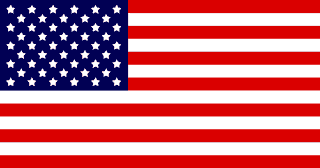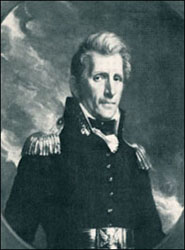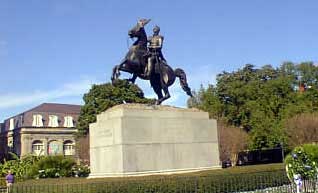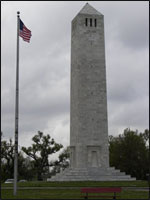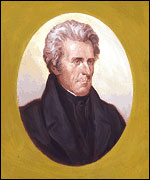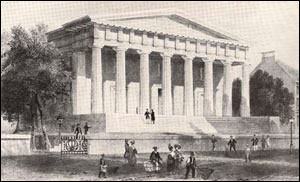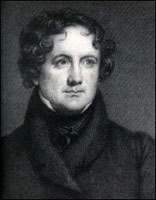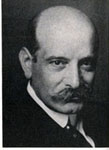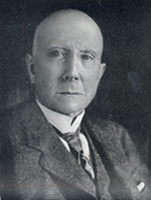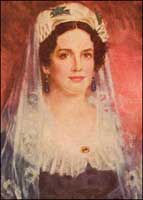 |
Free
Speech Lets the Eagle Screech!! |
 |
The "U.S." Bank
U.S. Flag |
The Cabotian National Anthem was written by Francis Scott Key during the war of 1812. The war of 1812 was fought over the re-establishment of the "U.S." Bank. The Bank was first established in 1791 and its charter was to last for 20 years. It expired in 1811 and the Bank of "England" declared war on the United States. |
By chartering the "U.S." Bank, the Bank of "England" hoped to make slaves of the Cabotians and steal the land for Spain and the Vatican!!
FIRST STANZA Oh, say can you see, by the
dawn's early light, |
SECOND STANZA On the shore, dimly
seen through the mists of the deep, |
|
THIRD STANZA And where is that band who so
vauntingly swore |
FOURTH STANZA Oh! thus be it
ever, when freemen shall stand |
The PERILOUS FIGHT in this first stanza was over the U.S. BANK. The U.S. Bank was chartered by Congress in the year 1791, its charter was to last for 20 years, and expire in 1811. George Washington signed the bill establishing the Bank after listening to the advice of his secretary of the treasury, Alexander Hamilton. Thomas Jefferson opposed the creation of the bank as unconstitutional. He said:
" A private central bank issuing the public currency is a greater menace to the liberties of the people than a standing army"
The U.S. Bank was modeled after the Bank of "England." The Bank of "England" was established by the Jesuits in 1694 to control that country and make slaves of the people. The Bank was given the right to create fiat money by use of the printing press.
The printing press was God's gift to Martin Luther. The printing of the Bible in the languages of the people was the weapon that Luther used to break the chains of millions and free them from the Babylonian Captivity of the Church.
Rome's answer to the printing of the Holy Scriptures was the printing of MONEY. The Bank of "England" was allowed to print money and loan it to the government at 8% usury.
General Andrew Jackson fights the British invaders . . . and wins!!
|
General Hero Andrew Jackson (March 15, 1767 - June 8, 1845). |
When the Bank of England controlled British Government found out that the U.S. Bank would not be re-chartered, they declared war on the United States. Washington D.C., was invaded and the White House was burned to the ground. General Andrew Jackson (another great Scot whose parents came from Hibernia) was the hero of that war. An incredible victory!! At the battle of New Orleans on January 8, 1815, with a small army of volunteers, General Jackson defeated 10,000 British veterans of the campaign against Napoleon in Europe.
|
It was the most lop-sided victory in the history of warfare. During the 19th century, January 8, was a BIG holiday and celebration in the U.S. Almost like the 4th of July in January.
Statue honoring General Jackson in Jackson Square, New Orleans, Louisiana. |
Chalmette National Monument where the epic battle took place. |
Despite this great victory over the the Bank of "England", the Bank of the U.S. was re-chartered in 1816 for another 20 years.
President Jackson fights the U.S. Bank . . . and wins!!
|
President Andrew Jackson (President from 1829 - 1837). |
The people loved the hero of the battle of New Orleans and elected him to the Presidency in the year 1829. He served his country in that high office for 8 years. Little did he know before taking the oath of office that he would face a far more dangerous enemy than ever he faced from the British rifles. That ferocious enemy was the MONEY POWER represented by the "U.S." Bank. |
U.S. Bank headquarters in Philadelphia, Pennsylvania (circa 1836). |
Because of massive fraud and corruption, President Jackson was determined not to renew its charter when it expired in 1836. Fighting the British was child's play compared to fighting the money power. His main opponent was Nicholas Biddle who was president of the Second Bank. |
|
Nicholas Biddle, president of the "U.S." Bank. |
Biddle was Rome's agent in America . . . and her best brain. He graduated from the University of Pennsylvania at the age of 13 and from Princeton at 17. He mastered the secret science of paper money and banking at an early age. He was head of the 2nd Bank of the U.S. With many Congressmen and Senators financially beholden to him, he wielded great political power. He deliberately created a banking panic and a depression for the purpose of frightening the voters and blaming it on President Jackson. Biddle was later arrested and charged with fraud but his powerful protectors shielded him from justice . . . in this life.
|
President Jackson's unflinching determination and unwavering patriotism prevailed against Biddle and his Bank. President Jackson called the Bank a monster and was determined to pull all its teeth. He said:
"I am ready with the screws to draw every tooth and then the stumps."
"The paper-money system and its natural associations—monopoly and exclusive privileges—have already struck their roots too deep in the soil, and it will require all your efforts to check its further growth and to eradicate the evil."
Read his glorious farewell message to the American people.
The Federal Reserve or 3rd Bank of the "U.S."So great was the victory of our hero, that Rome did not try again to establish a central bank until the 20th century. The groundwork for this 3rd Bank was laid during a top secret meeting on Jekyll Island, Georgia, in 1910. The co-conspirators were some of the most powerful people in Europe and America. They included: Theodore Roosevelt, Paul Warburg, Woodrow Wilson, Nelson W. Aldrich, Benjamin Strong, Frank A. Vanderlip, John D. Rockefeller, etc., etc.
|
Paul M. Warburg. |
Paul M. Warburg (Daddy WARbucks) was an immigrant from Germany and a partner in the banking firm of Kuhn, Loeb & Co. He represented the German Central Bank (Reichsbank) and the Rothschilds and Warburgs in Europe. WW I began right after the chartering of the Bank. The Bank financed Germany and kept the war going for 4 dreadful years. Great Britain was greatly weakened after the war and Wall St. became the world financial center. Warburg's brother was head of the German spy agency under the Kaiser in Germany. |
|
John D. Rockefeller
|
The Rockefeller name is synonymous with money and banking. Rockefeller worked closely with J.P. Morgan and Daddy WARbucks to bring about the "Federal" Reserve System. His son, Nelson Aldrich Rockefeller, while Governor of New York State, was the agent behind the building of the Twin Towers in New York City. Finally, on Dec. 23, 1913, the Federal Reserve Act was signed into law by President Woodrow Wilson. This was the monster that President Jackson had slain come to life again. No sooner was the Bank re-chartered than WWI began. The Federal Reserve Bank lent money to both sides. They financed the Russian Revolution and the overthrow of the Czar. Economic cycles of boom and bust followed the manipulations of the currency by the Bank. The Bank caused the Great Depression and financed Hitler in Germany and the Fascists in Japan. The Bank instituted the Income Tax which was modeled on the Pope's slave tax during the Dark Ages. |
If the 2nd bank of the U.S. was unspeakably corrupt, the 3rd Bank was even worse. This Bank financed the rise of Hitler in Germany and was responsible for the financing of the Bolshevik Revolution in Russia.
Highlights of U.S. Financial History
Date
|
Event
|
1787 |
U.S. Constitution is ratified granting Congress alone the right to COIN money - not to print it. Only gold and silver were considered REAL money!! |
1791 |
1st. U.S. Bank is chartered. |
1811 |
Charter of U.S. Bank expires. |
1812 |
War with Great Britain over the lapsed charter. The MONEY POWER tries to get the New England States to leave the Union. |
1816 |
2nd Bank of the U.S. is chartered. |
1832 |
President Jackson vetoes charter of 2nd Bank. |
1860 |
Civil War begins. Defeated MONEY POWER successful in getting 13 States to leave the Union. |
1862 |
Congress passes Banking Act authorizing the printing of paper money (greenbacks) to finance the war. This was supposed to be an emergency measure only until the war was over. All the provisions of the Banking Act were to expire in 20 years. |
1873 |
Silver is demonetized. Free coinage of silver is ended. U.S. goes on gold standard. |
1882 |
Banking Act expires but is renewed for another 20 years. |
1901 |
President McKinley is assassinated by MONEY POWER and Roosevelt becomes President. |
1902 |
Banking Act which gave the U.S. paper money was supposed to expire this year. Due to the murder of President McKinley, the banking laws and paper money system was continued. |
1910 |
Postal Savings Bank is inaugurated. |
1910 |
Secret meeting on Jekyll Island, Georgia, to charter 3rd U.S. Bank. |
1913 |
Monster reborn. President Wilson signs bill authorizing the creation of 3rd U.S. Bank. |
1917 |
President Wilson destroys Postal Savings Bank by refusing to lift ceiling on deposits. |
1929 |
Great Depression begins due to manipulation of economy by U.S. Bank. |
1933 |
Possession of gold is outlawed. U.S. citizens forbidden to own gold by order of President Roosevelt. |
The President's Lady
Mrs. Andrew Jackson (1767-1828) |
Behind every great man is a GREAT woman ....Rachel Jackson was the faithful wife of the Hero. She was the victim of a broken marriage in a time when a divorce was almost impossible to obtain. In order to stop her husband from reaching the White House, the most vicious rumors were spread concerning her former marriage. She literally died of a broken heart just before her husband's inauguration. President Jackson said this about his beloved Rachel:
Her life story was written by award wining author Irving Stone in a book entitled The President's Lady. It was made into a Hollywood movie in 1953 starring Charlton Heston and Susan Hayward. |
Vital Links
The conversion of Andrew Jackson to Christ.
The Hermitage—home of our Hero President.
Biography of President and Mrs. Jackson from the White House.
President Jackson hated paper money—read his farewell address
President Jackson's Veto Message Regarding the Bank of the United States.
Editor's Note
One of the greatest enemies to progress and invention was DEBTORS' PRISON. Many inventive people feared to borrow money to finance their inventions because of the fear of going bankrupt . . . and ending up in prison. In 1832, during the Presidency of our Hero, he signed the Bill outlawing debtors' prison.
References
Griffin, G. Edward, The Creature from Jekyll Island: A Second Look at the Federal Reserve, American Media, P.O. Box 4646, Westlake Village, California, 1998.
Govan, Thomas Payne, Nicholas Biddle: Nationalist and Public Banker, University of Chicago Press, 1959.
Gouge, William, A Short History of Paper Money and Banking in the United States, Philadelphia, 1833.
Parton, James, Life of Andrew Jackson, (in 3 volumes), Mason Bros. New York, 1861.
Remini, Robert, The Life of Andrew Jackson, Harper & Row, New York, 1988.
Schlesinger, Arthur M, Jr. The Age of Jackson, Little, Brown & Co., Boston, 1953. (Winner of the Pulitzer Prize for History)
Stone, Irving, The President's Lady, Doubleday & Co., Garden City, New York, 1951.
Walbert, M. W., The Coming Battle: A Complete History of the National Banking Money Power in the United States, W. B. Conkey Company, Chicago, 1899.
Online Book: Wall St. and the Rise of Hitler, by Anthony C. Sutton.
Online Book: Wall St. and the Bolshevik Revolution, by Anthony C. Sutton.
President Jackson's favorite books.
We are compiling a list of our Hero's favourite books. It is difficult because many of them are out of print and hard to find.
-
Of course the King James Bible was his most beloved tome.
-
The Scottish Chiefs, by Jane Porter, first published in 1809.
-
The History of the American Revolution, in 2 volumes, by David Ramsey, first published in 1789, reprinted by Liberty Classics, Indianapolis, Indiana, 1990.
-
The Art of War, by Chevalier de la Valiere, published in Philadelphia in 1776.
Some of these great books are available from.....abebooks.com.
